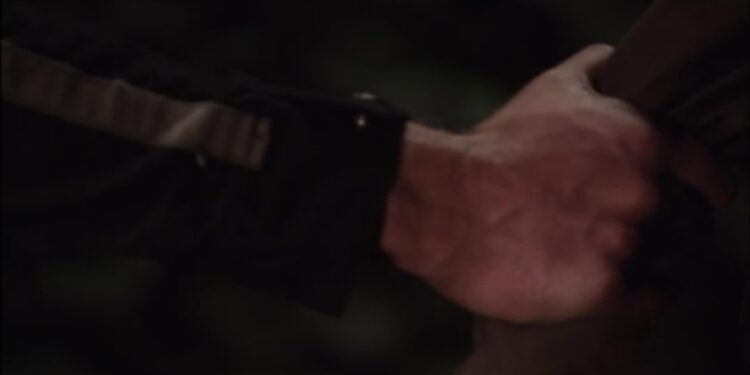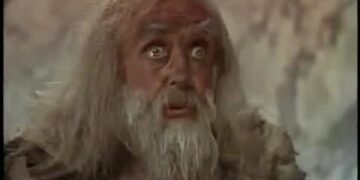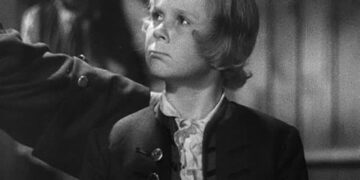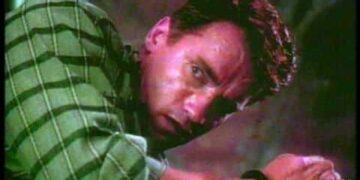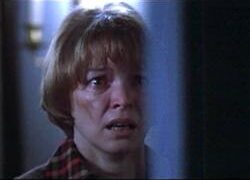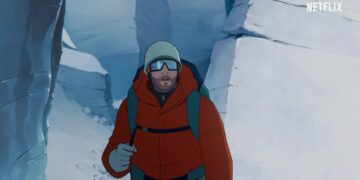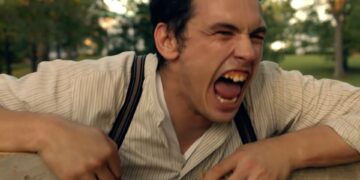Flash Gordon: A Modern Space Opera is a timeless masterpiece, a narrative marvel that transcends time and space. This space opera, initially conceived by Alex Raymond, has been reimagined through various platforms. However, the focus of this article will be the comparison between the original comic series by Alex Raymond and the TV series by Peter Hume.
Created in 1934, Alex Raymond’s Flash Gordon was a comic strip that quickly gained popularity for its innovative storytelling and captivating artwork. The comic strip became a cultural phenomenon, influencing the science fiction genre and serving as the inspiration for many future works.
Peter Hume took this beloved comic strip and transformed it into a modern TV series in 2007. While maintaining the essence of the original work, Hume revamped the storyline, characters, and setting to cater to the contemporary audience. The TV series garnered a new wave of fans and brought Flash Gordon back into the limelight.
Who’s who in Flash Gordon: A Look at Main Characters
Flash Gordon, the protagonist of the series, is an athletic and smart hero. Whether in Raymond’s comic or Hume’s TV series, Flash’s character remains consistent, embodying bravery and nobility. He is the epitome of a classic hero – strong, resilient, and willing to sacrifice for the greater good.
Dale Arden, the love interest of Flash, is a source of strength and support. Alex Raymond portrayed her as a damsel in distress in the comic series, while Peter Hume’s TV series presented a more independent and resourceful Dale. She is a reporter with a knack for getting into dangerous situations but always manages to find her way out.
Ming the Merciless, the main antagonist in both the comic and TV series, is an intergalactic tyrant. He is ruthless, cunning, and will stop at nothing to maintain his power. In Raymond’s comic, Ming is the absolute ruler of Mongo, while in Hume’s series, he is a businessman with a hidden agenda.
Summary of Alex Raymond’s Original Comic
The comic summary of Flash Gordon begins with a mysterious planet, Mongo, hurtling towards Earth. Flash Gordon and Dale Arden, aboard a spacecraft, crash on Mongo. They encounter its tyrannical ruler, Ming the Merciless, and the oppressed inhabitants. Flash, with his companions, embarks on a mission to overthrow Ming and free Mongo.
The comic strip is known for its rich storytelling, intricate plots, and visually stunning artwork. Raymond’s illustrations are detailed and expressive, bringing the world of Mongo and its strange creatures to life. The comic series had a long run, continuing even after Raymond’s departure, and has been reprinted in numerous publications.
Summary of Peter Hume’s TV Series
The TV series summary gives a modern take on the classic space opera. Flash Gordon, a marathon winner and ex-football player, finds himself transported to Mongo via a rift in space. Here, he discovers the oppressive rule of Ming. Joined by Dale and Dr. Zarkov, they begin a rebellion against Ming’s rule.
Peter Hume’s TV series is known for its character development, plot twists, and special effects. The series has a more grounded approach, with Flash and his friends commuting between Earth and Mongo through a rift. It adds a layer of complexity and realism to the fantastical world of Flash Gordon.
Comparison between the Comic and TV Series
While both the comic and TV series follow the premise of Flash Gordon on Mongo battling Ming the Merciless, they differ in various aspects. The comic strip has a more traditional and linear storyline, while the TV series incorporates modern elements and a complex narrative structure.
In the comic series, Flash and Dale are on Mongo continuously, battling various threats and forming alliances. However, in the TV series, Flash and his friends travel between Earth and Mongo, leading to a more dynamic storyline.
Characterization is another area of difference. While Raymond’s characters are more archetypical, Hume’s characters have depth and undergo significant character growth. For instance, Dale Arden, initially a damsel in distress in the comic series, becomes a resourceful journalist in the TV series.
A Parent’s Guide to Flash Gordon: A Modern Space Opera
As a parent, you might wonder if Flash Gordon: A Modern Space Opera is suitable for your children. While the comic and TV series have their share of action and peril, they also embody essential values like bravery, friendship, and the fight against injustice.
The comic series, despite its vintage appeal, remains engaging with its rich illustrations and adventurous storyline. However, it might contain some outdated stereotypes and attitudes that could require discussion.
Peter Hume’s TV series, on the other hand, has a PG rating, making it suitable for older kids and teenagers. It has a good balance of action, drama, and humor while imparting important life lessons. The series encourages critical thinking and promotes the importance of standing up against tyranny.
Timeline and Locations of Flash Gordon: A Modern Space Opera
Flash Gordon’s adventures take place in a vast and varied universe. The timeline of the series is linear, with events unfolding one after the other. However, there are several flashbacks, time travel instances, and parallel universe storylines.
The primary location in both the comic and TV series is the planet Mongo. This is where Flash battles Ming’s forces, befriends various alien species, and leads a rebellion. Other locations include Earth, the Hawkmen’s floating city, and the underwater realm of the Shark Men.
In the TV series, the frequent commuting between Earth and Mongo through a rift adds an exciting dimension to the storyline. It brings an element of unpredictability and expands the narrative’s scope.
Guest Stars of Flash Gordon: A Modern Space Opera
Flash Gordon: A Modern Space Opera saw an array of guest stars adding their unique charm to the series. Notable guest stars include Sam J. Jones, who played Flash Gordon in the 1980 movie, making a cameo as a version of Flash from a parallel universe. Other guest stars include Ty Olsson, Carmen Moore, and John Ralston, who brought depth and diversity to the character roster.
Captivating Quotes from Flash Gordon: A Modern Space Opera
Quotes from Flash Gordon: A Modern Space Opera serve as timeless reminders of the series’ essence. One such quote is Flash’s iconic line, “I’m not from this world, Ming. My ways are not your ways.” This quote encapsulates Flash’s alien-ness and his determination to fight against Ming’s tyranny.
Another memorable quote is Dale’s line, “New worlds, new rules. I guess we’ll just have to wing it.” This quote highlights the spirit of adventure and adaptability that characterizes the series.
The Impact of Michael Picton’s Soundtrack on the Series
Music is a vital aspect of any TV series, and Michael Picton’s soundtrack for Flash Gordon: A Modern Space Opera is no exception. The music sets the tone for the series, enhancing the narrative’s emotional depth and heightening the on-screen action.
Picton’s soundtrack is a blend of orchestral and electronic elements, reflecting the series’ amalgamation of classic and modern themes. The music captures the grandeur of Mongo, the suspense of the battles, and the emotional journey of the characters.
Unveiling the Curiosities of Flash Gordon: A Modern Space Opera
There are several curiosities associated with Flash Gordon: A Modern Space Opera. For instance, Alex Raymond initially considered several other names for the protagonist, including ‘Speed Gordon’ and ‘Flash Lightning’, before settling on ‘Flash Gordon’.
In the TV series, the character of Ming underwent a significant transformation. Instead of the stereotypical Asian despot from the comic series, Ming was portrayed as a sophisticated and manipulative businessman.
Tips for Cosplay and Dressing like Flash Gordon Characters
Cosplaying as characters from Flash Gordon: A Modern Space Opera can be a fun and creative endeavor. For Flash, you would need a red shirt, khaki pants, and a leather jacket. Don’t forget the iconic lightning bolt symbol!
Dale’s outfits in the TV series are contemporary and chic. A stylish top, jeans, and a leather jacket could help you capture her look. As for Ming, his look is more extravagant, with his elaborate robes and distinctive hairstyle.
Bio and Works of Alex Raymond
Alex Raymond was an American cartoonist, best known for creating the Flash Gordon comic strip. Born in 1909, Raymond began his career as an assistant to Russ Westover. He later worked on several comic strips, including Secret Agent X-9 and Jungle Jim.
Raymond’s work on Flash Gordon is his most celebrated contribution. His innovative storytelling and detailed artwork revolutionized the comic strip format and influenced generations of artists and writers.
Peter Hume’s Contributions to Other Media
Peter Hume is a Canadian screenwriter and producer. Born in 1956, Hume started his career in the film industry as a production assistant. He later transitioned to writing and has worked on several TV shows, including Andromeda, Eureka, and Charmed.
Hume’s work on Flash Gordon: A Modern Space Opera is well-recognized. His interpretation of the classic space opera for the modern audience is a testament to his creativity and storytelling prowess.
Flash Gordon: A Modern Space Opera Remake, Sequel, and Spin-off
Since its inception, Flash Gordon: A Modern Space Opera has seen several remakes, sequels, and spin-offs. The 1980 movie, directed by Mike Hodges, is a cult classic. The animated series, Flash Gordon: The Greatest Adventure of All, aired in 1982.
Peter Hume’s TV series serves as a modern remake of the classic space opera. While it received mixed reviews, it has gained a loyal fanbase over the years. There are rumors of a possible sequel or spin-off, but nothing has been officially confirmed as of now.
Similar Media to Flash Gordon: A Modern Space Opera
If you enjoyed Flash Gordon: A Modern Space Opera, there are several similar media that you might like. Star Wars, created by George Lucas, shares several similarities with Flash Gordon, including the space opera format and the battle against an evil empire.
Buck Rogers, another comic strip created in the 1930s, also shares similarities with Flash Gordon. Both series feature a hero battling against alien threats and tyrannical rulers.
Exploring Other Works of Alex Raymond
Apart from Flash Gordon, Alex Raymond has worked on several other comic strips. Secret Agent X-9, co-created with Dashiell Hammett, is a detective series. Jungle Jim, another creation of Raymond, is an adventure series set in Southeast Asia.
Raymond’s work is characterized by his detailed and expressive artwork. His ability to create engaging storylines and memorable characters has left an indelible mark on the comic strip industry.
Travel Guide to Visit Flash Gordon: A Modern Space Opera Locations
While the exotic locations of Flash Gordon: A Modern Space Opera are fictional, you can still visit the filming locations of the TV series. The series was primarily filmed in Vancouver, Canada. You can visit the stunning locations and relive the adventures of Flash Gordon.
If you’re a fan of the comic series, you can visit the Alex Raymond exhibit at the Cartoon Art Museum in San Francisco. The exhibit features original artwork from the Flash Gordon comic strip.
Flash Gordon: A Modern Space Opera Book Club Questions
If you’re part of a book club or a fan group, here are some questions to spark discussion:
- How does the portrayal of Flash Gordon differ between the comic and TV series?
- What impact does the setting have on the storyline?
- How does the character of Dale Arden evolve throughout the series?
- What themes are prevalent in Flash Gordon: A Modern Space Opera?
- How do the comic and TV series reflect the time periods they were created in?
Conclusion
Flash Gordon: A Modern Space Opera is a timeless classic, captivating audiences with its thrilling adventures and compelling characters. Whether you prefer Alex Raymond’s original comic or Peter Hume’s modern TV series, there’s no denying the charm and appeal of this space opera. From its inception as a comic strip in 1934 to its current incarnation as a TV series, Flash Gordon continues to inspire and entertain.


